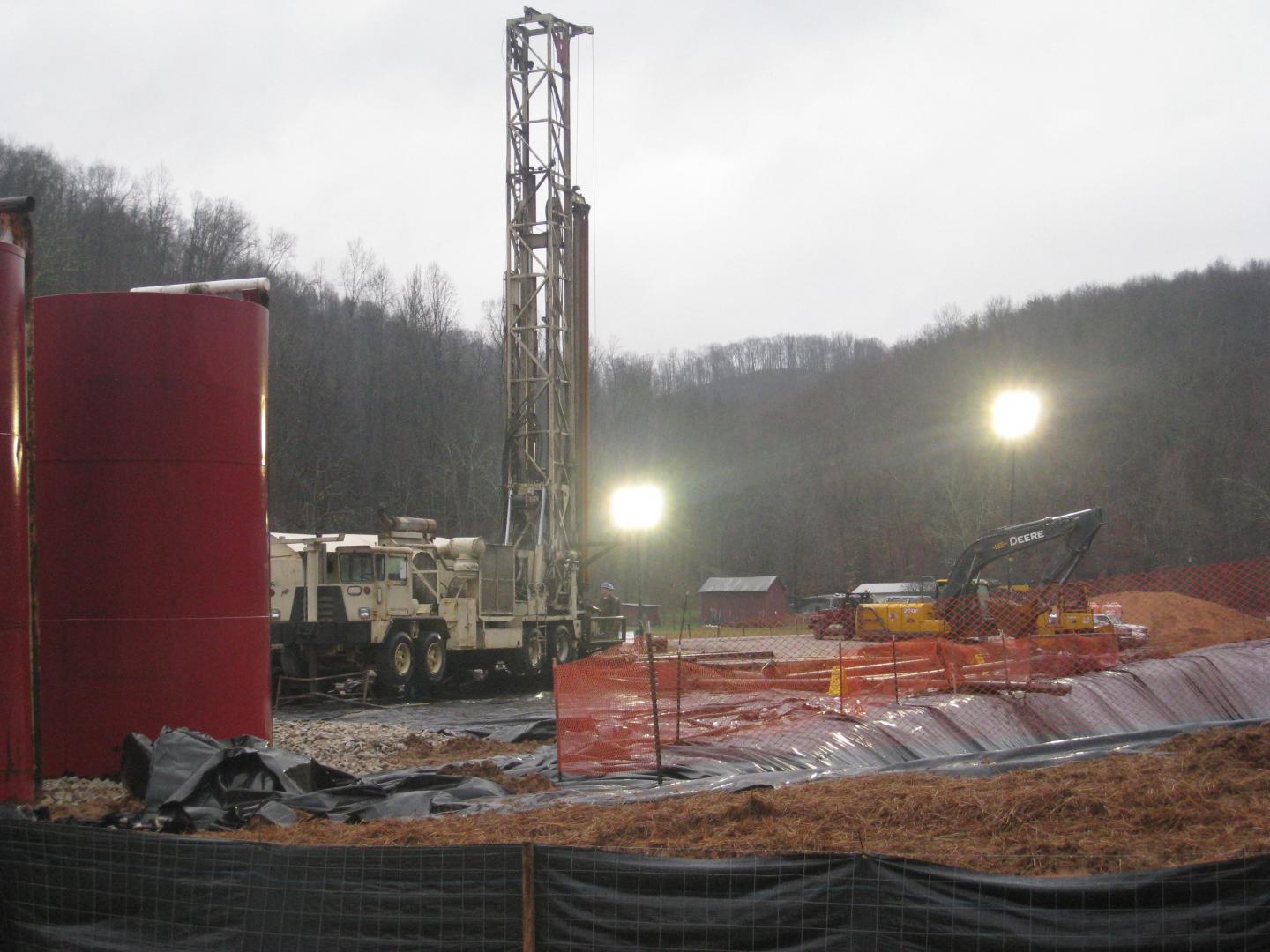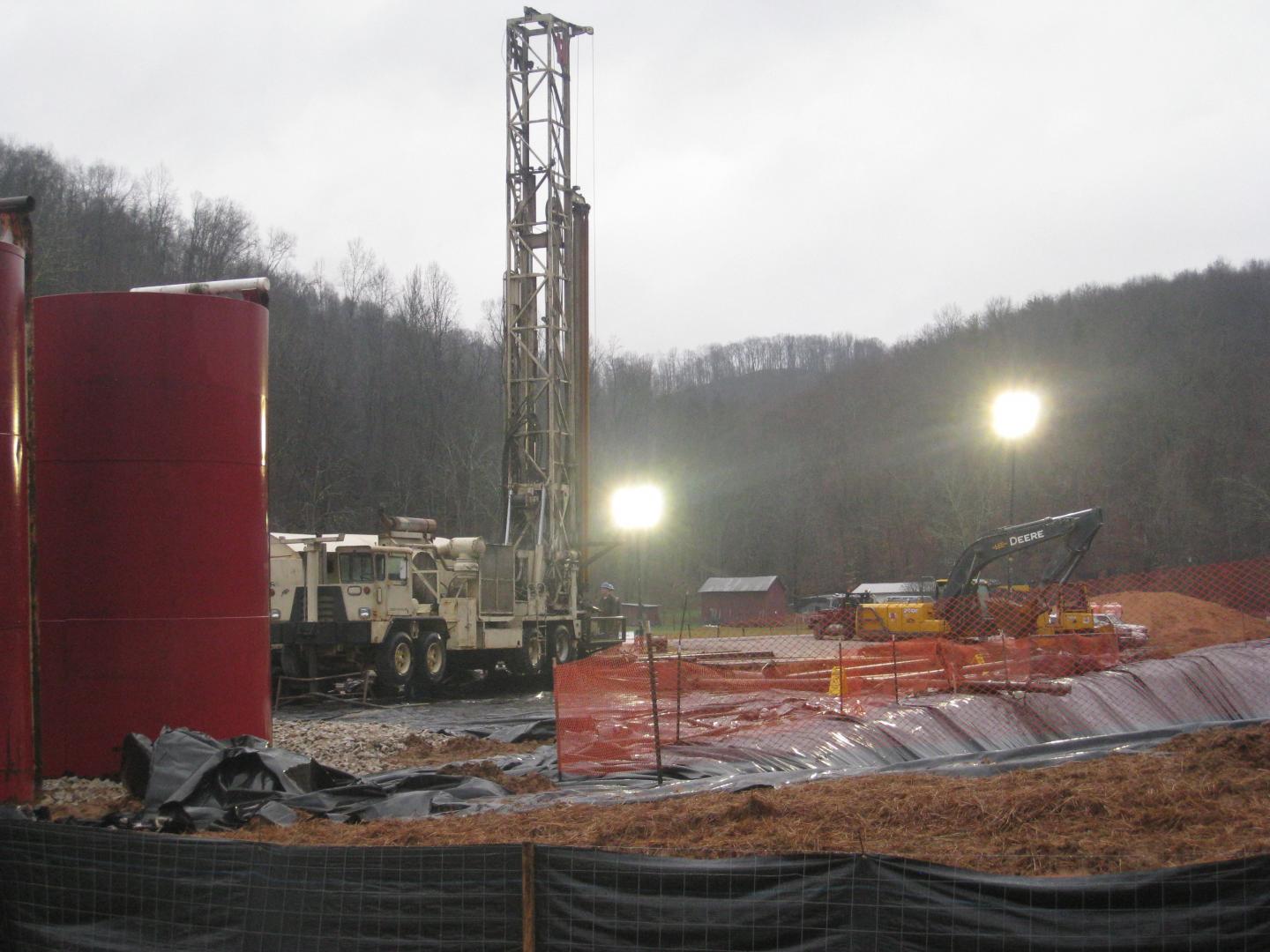
Credit: Avner Vengosh, Duke University
DURHAM, N.C. – Fracking has not contaminated groundwater in northwestern West Virginia, but accidental spills of fracking wastewater may pose a threat to surface water in the region, according to a new study led by scientists at Duke University.
"Based on consistent evidence from comprehensive testing, we found no indication of groundwater contamination over the three-year course of our study," said Avner Vengosh, professor of geochemistry and water quality at Duke's Nicholas School of the Environment. "However, we did find that spill water associated with fracked wells and their wastewater has an impact on the quality of streams in areas of intense shale gas development."
"The bottom-line assessment," he said, "is that groundwater is so far not being impacted, but surface water is more readily contaminated because of the frequency of spills."
The peer-reviewed study was published this month in the European journal Geochimica et Cosmochimica Acta.
The Duke team collaborated with researchers from The Ohio State University, Pennsylvania State University, Stanford University and the French Geological Survey to sample water from 112 drinking wells in northwestern West Virginia over a three-year period.
Twenty of the water wells were sampled before drilling or fracking began in the region, to provide a baseline for later comparisons.
Samples were tested for an extensive list of contaminants, including salts, trace metals and hydrocarbons such as methane, propane and ethane. Each sample was systematically analyzed using a broad suite of geochemical and isotopic forensic tracers that allowed the researchers to determine if contaminants and salts in the water stemmed from nearby shale gas operations, from other human sources, or were naturally occurring.
The tests showed that methane and saline groundwater were present in both the pre-drilling and post-drilling well water samples, but that they had a chemistry that was subtly but distinctly different from the isotopic fingerprints of methane and salts contained in fracking fluids and shale gas. This indicated that they occurred naturally in the region's shallow aquifers and were not the result of the recent shale gas operations.
"The integrated suite of tracers we used — which were developed at Duke in recent years — provides us with tools sensitive enough to accurately distinguish these subtle differences, which might be missed if you only used a handful of simple measurement techniques," explained Jennifer Harkness, a recent PhD graduate of Duke's Nicholas School, who led the new study.
Some of the tracers have never been used together before, Vengosh noted. "To our knowledge, we are the first to report a broadly integrated use of these various geochemical techniques in studying groundwater contamination before and after the installation and fracking of shale gas wells."
"What we found in the new study in West Virginia is different from what we have found in previous studies in northeastern Pennsylvania and Texas but similar to what we found in Arkansas," Vengosh said. "That's because geology varies by region, as do the drilling operators and conditions. Time also plays a factor. What we found in the study area in West Virginia after three years may be different from what we see after 10 years, because the impact on groundwater isn't necessarily immediate."
"Using this integrated toolbox, we can conduct similar tests in as many other regions as possible, over longer time frames, to determine both the unique short-term local impacts on water quality, and the broad, cumulative long-term impacts," he said.
###
Vengosh and Harkness conducted the study with Thomas Darrah, Colin Whyte and Myles Moore of Ohio State; Nathaniel Warner of Penn State; Romain Millot and Wolfram Kloppman of the French Geological Survey, and Robert Jackson of Stanford.
Funding came from the National Science Foundation (grants #EAR-1441497 and #1249255) and the Natural Resources Defense Council.
CITATION:
"The Geochemistry of Naturally Occurring Methane and Saline Groundwater in an Area of Unconventional Shale Gas Development,: Jennifer S. Harkness, Thomas H. Darrah, Nathaniel R. Warner, Colin J. Whyte, Myles T. Moore, Romain Millot, Woldfram Kloppman, Robert B. Jackson, and Avner Vengosh; Geochimica et Cosmochimica Acta, July, 2017 (available online, April 2017): DOI: http://dx.doi.org/10.1016/j.gca.2017.03.039
Media Contact
Tim Lucas
[email protected]
919-613-8084
@DukeU
http://www.duke.edu
############
Story Source: Materials provided by Scienmag





